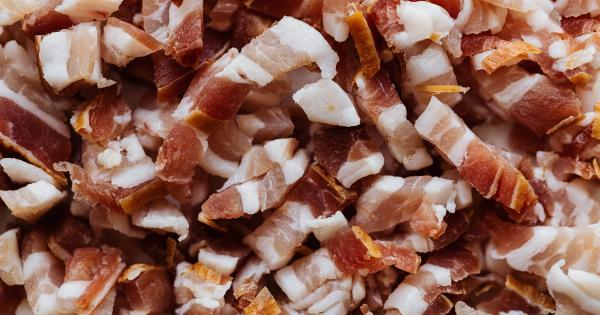There is a common belief that men need more meat than women due to their higher muscle mass and testosterone levels. However, is there any truth to this claim? Let’s explore the science behind it.
What Does Science Say?
According to a study published in the American Journal of Clinical Nutrition, men have a higher protein requirement than women, primarily due to their higher lean body mass and greater daily energy expenditure.
Therefore, it’s not necessarily meat that men need more of, but rather protein in general.
Furthermore, the study found that women who exercise on a regular basis have a higher daily protein requirement than sedentary women, which is similar to the protein requirements of their male counterparts.
This suggests that gender is not the determining factor for protein requirements, but rather factors such as activity level and body composition.
Another study published in the Journal of the Academy of Nutrition and Dietetics found that both men and women could meet their protein requirements through plant-based sources, without the need for animal products such as meat.
What About Testosterone Levels?
It’s true that testosterone plays a role in muscle development and maintenance, but it’s important to note that women also have testosterone in their bodies, just at lower levels than men.
In fact, research has shown that the difference in testosterone levels between men and women does not significantly affect their muscle protein synthesis rates.
Therefore, while testosterone levels may play a slight role in protein requirements, it’s not a significant enough factor to justify men needing more meat than women.
Factors That Do Affect Protein Requirements
As mentioned earlier, activity level and body composition are two factors that play a significant role in determining protein requirements. In addition to these factors, age and health status also play a role.
According to the Academy of Nutrition and Dietetics, older adults have a lower protein requirement per kilogram of body weight than younger adults due to decreased muscle mass and function.
Additionally, individuals with certain health conditions such as kidney disease may require lower protein intake to prevent further damage to the kidneys.
Conclusion
In conclusion, while men may have a slightly higher protein requirement than women due to their higher lean body mass and energy expenditure, it’s not necessarily meat that they need more of.
Both men and women can meet their protein requirements through plant-based sources and other animal products such as eggs and dairy.
Factors such as activity level, body composition, age, and health status play a more significant role in determining protein requirements than gender or testosterone levels.






























